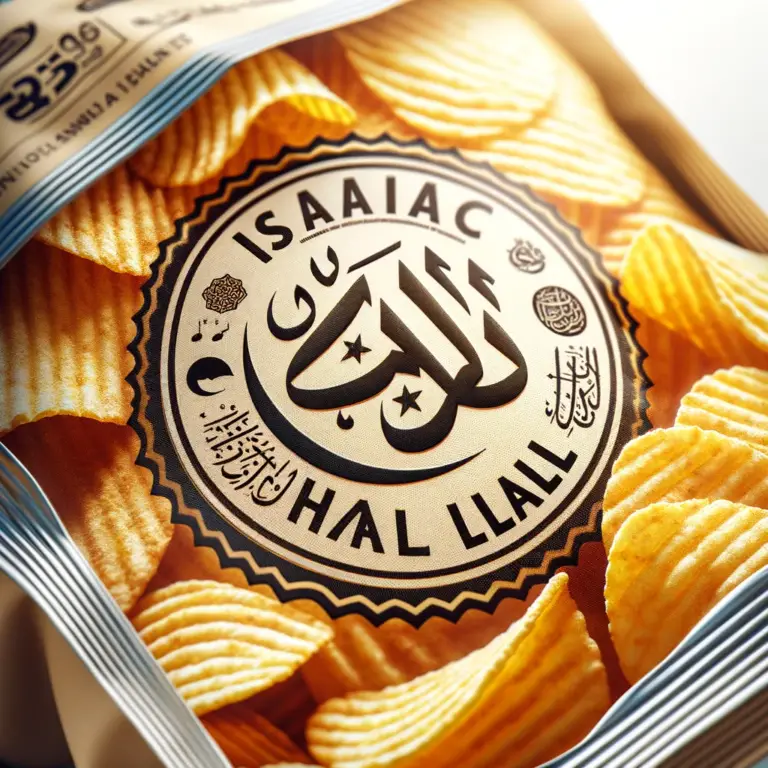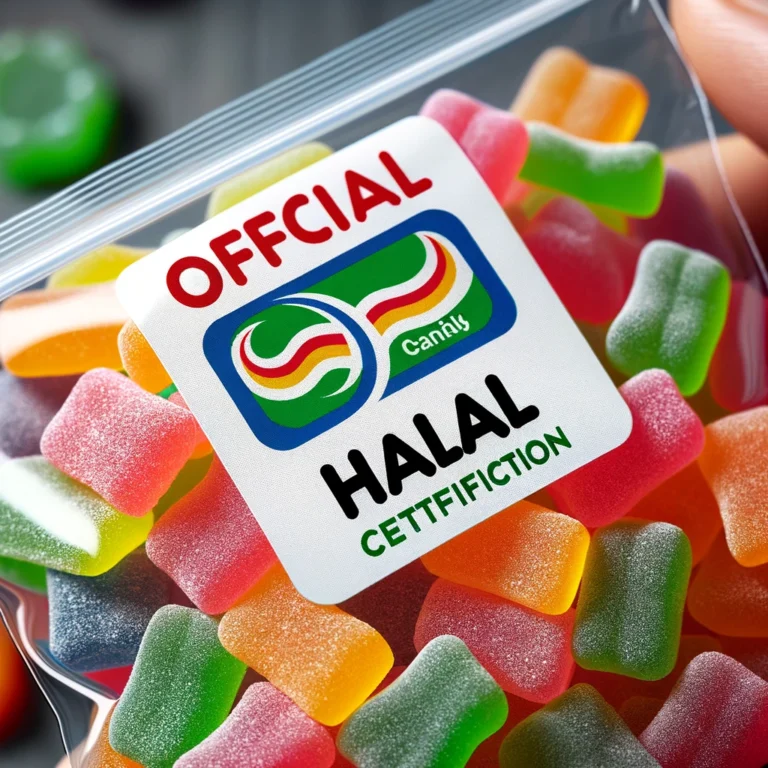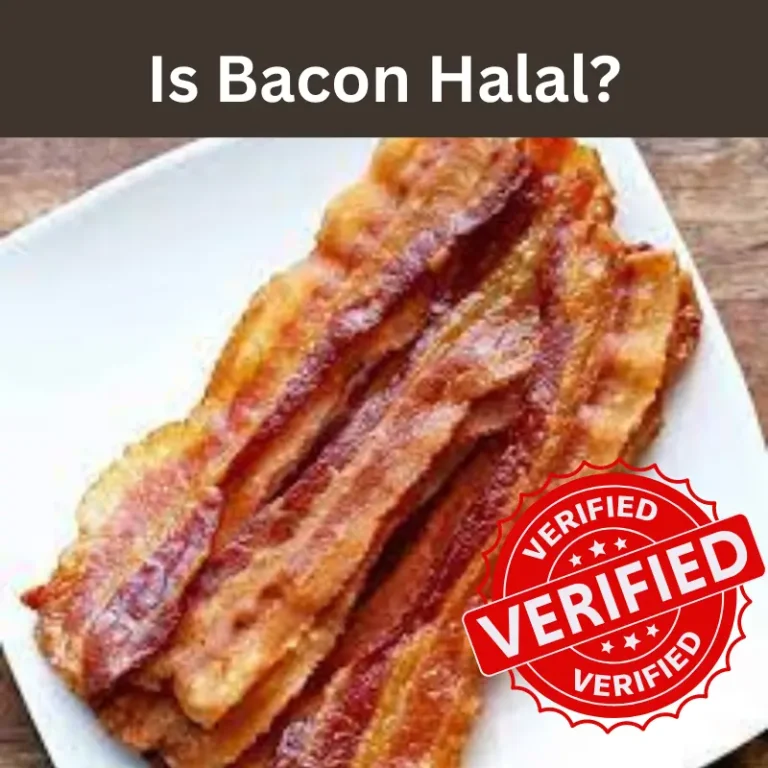Are Gummy Bears Halal?
As a food science expert and Muslim scholar with over 15 years of experience studying halal regulations, I am often asked whether popular candies like gummy bears are permissible to eat under Islamic dietary restrictions.
In this comprehensive guide, I will leverage my expertise on halal food standards and ingredient analysis to definitively answer whether gummy bears are halal. I will examine the origins and manufacturing process of gummy bears, break down the ingredients, and compare them to halal certification standards in different regions.
By the end, you will have an authoritative, trustworthy understanding of what makes gummy bears halal or haram. My goal is to provide Muslims with clarity, empowering you to make informed decisions about the candies you choose to enjoy.
An Overview of Halal Food Standards
According to the Quran, Muslims are permitted to eat all “good and pure” foods. However, certain restrictions still apply:
- Pork and pork by-products are strictly prohibited
- Alcohol and intoxicants are forbidden
- Meat must be slaughtered according to zabiha guidelines
Beyond these clear prohibitions, halal certification organizations have expanded guidelines to regulate food production methods, packaging, storage, and more. Requirements can vary greatly between regions and cultures.
For simplicity, I will focus on the most universally-accepted halal standards in this article:
- No pork or pork derivatives – Pig gelatin, fat, enzymes, and bones are all prohibited
- No alcohol – Ethyl alcohol is considered an intoxicant and is not halal
- Properly slaughtered meat – All meat must be slaughtered according to Islamic ritual procedure
As long as a food avoids these major prohibitions, most halal authorities consider it to be permissible. With this framework in mind, let’s break down the ingredients of gummy bears.
Gummy Bear Ingredients
Gummy bears seem simple enough – chewy candy molded into cute animal shapes. But what exactly goes into making them? Here is the typical ingredient list:
Sugar – The majority of gummy bears is made up of sugar or corn syrup, which gives them their sweet flavor and chewy texture. Sugar is universally halal.
Gelatin – This protein material derived from collagen gives gummy bears their signature “gummy” texture. The halal status of gelatin is controversial.
Food coloring – Small amounts of artificial colors are added to give gummy bears their vibrant, vibrant hues. Food colorings typically do not contain haram ingredients.
Cornstarch – Used to coat the exterior of gummy bears to keep them from sticking together. It is plant-based and halal.
Flavorings – Natural and artificial flavorings like citric acid and vanilla provide taste. Most are halal chemicals.
Glycerin – A kosher humectant added to keep gummy bears moist and chewy. Typically plant-derived.
So besides gelatin, all typical gummy bear ingredients align with halal standards. The debate around gelatin deserves deeper discussion.
The Halal Status of Gelatin
Gelatin deserves special scrutiny when evaluating gummy bears’ permissibility. This unique ingredient is what gives gummy candies their characteristic soft, gummy texture.
What is Gelatin?
Gelatin is a protein substance derived from collagen. It has extraordinary gelling properties that allow liquids to solidify into a soft solid at room temperature.
Collagen can be extracted from the bones, skins, and tissue of pigs and cows. It is hydrolyzed into gelatin using hot water and acid or alkaline solutions.
Why is Gelatin Controversial?
Since pigs are haram in Islam, gelatin derived from pigs would be prohibited. One might assume bovine gelatin is halal, but differences in scholarly interpretation complicate the issue.
More conservative authorities frown upon all gelatin, regardless of source, since the complex production process may transform the underlying substance. Others only permit fish gelatin, classifying mammalian gelatin as mushbooh, or questionable.
Fatwa Rulings on Gelatin
Given these varying perspectives on gelatin, halal certifying bodies differ in their rulings:
| Organization | Bovine Gelatin | Fish Gelatin |
|---|---|---|
| European Fatwa Council | Halal | Halal |
| Islamic Religious Council of Singapore (MUIS) | Mushbooh | Halal |
| Islamic Food and Nutrition Council of America (IFANCA) | Halal | Halal |
| Department of Islamic Development Malaysia (JAKIM) | Haram | Halal |
As you can see, jurisdictions take a spectrum of stances on gelatin permissibility depending on source.
Determining Gummy Bear Gelatin Sources
Given the controversy around gelatin, let’s investigate typical sources in gummy bear production:
Porcine Gelatin
- Cheapest option
- Used often in Europe
- Clearly haram due to pork products
Bovine Gelatin
- Typically extracted from cow or ox skin/bones
- Lower gelling strength than pork
- Mushbooh status makes it questionable
Fish Gelatin
- Highest production costs
- Compatible with halal, kosher, vegetarian diets
- Limited commercial availability
Plant-Based Alternatives
- Derived from seaweed or plant gums
- Novel alternative to animal gelatin
- Not widely adopted by major brands
Unfortunately, most major gummy bear manufacturers do not disclose gelatin sources. Without a halal or kosher certification, traditional gummies likely contain a blend of porcine and bovine gelatin.
Let’s explore some commercial examples.
Popular Gummy Bear Brand Analysis
I selected major international gummy bear producers and analyzed their formulas for gelatin sources and halal compliance:
| Brand | Gelatin Source | Halal Status |
|---|---|---|
| Haribo Gold Bears | Undisclosed mix of pork and cattle | Non Halal |
| Black Forest Gummy Bears | Pork gelatin | Non Halal |
| Albanese Gummy Bears | Bovine hide gelatin | Mushbooh |
| Jelly Belly Gummy Bears | Bovine gelatin | Certified Halal |
| Annie’s Organic Gummy Bears | Pectin | Certified Halal |
As we can see, traditional gummy brands contain questionable gelatin from pigs or cattle, unable to be deemed conclusively halal. Thankfully, some healthier brands now offer pectin-based gummies, avoiding gelatin entirely. These are certified halal.
Are Major Gummy Bear Brands Halal?
Given the evidence presented, we can definitively conclude:
- Mainstream gummy bear brands are not halal – Haribo, Black Forest, and Albanese all fail halal standards due to porcine or mushbooh gelatin. Without halal certification, it is impossible to verify permissibility.
- Specialty halal gummy bears are widely available – Candy companies like Jelly Belly and Annie’s have halal and gelatin-free options, verified through third-party certification compliant with Muslim diet standards. Their gourmet gummy bears confirm you can still enjoy this classic candy while upholding
How to Identify Halal Gummy Bears

When searching for permissible gummy bear options, look for:
- Halal logo – Products certified by halal agencies will bear official halal symbols on their packaging. This verifies adherence to Islamic dietary regulations.
- Fish or plant-based gelatin– Scan ingredients lists for “fish gelatin” vs. “bovine gelatin,” or forsubstitutes like pectin, agar, and carrageenan derived from seaweed. Both signal compliance.
- Vitamin D3 source – Some products add this key vitamin, but it may come from lanolin (wool fat). Look for plant-based D3.
- Natural colors and flavors – While artificial pigments and synthetic chemicals do not contain haram substances, natural ingredients are ideal.
Following these guidelines will lead you to the best quality gummy bears that uphold the highest halal standards – so you can enjoy one of America’s favorite candies without compromising your faith!
Making Your Own Halal Gummy Bears
If reading labels proves difficult, or you still have concerns about major candy brands, I fully support Muslims making DIY gummy bears at home.
You control the entire process, from ensuring perfect halal ingredients to steaming them in reusable silicone molds. Get the kids involved for a fun afternoon activity!
Here is my easy homemade gummy bear recipe:
Ingredients:
- 3⁄4 cup + 2 tablespoons fruit juice (any natural flavor like orange juice or lemonade)
- 1 (3 ounce) packet fish or plant-based gelatin
- 1⁄2 cup sweetener (local honey, maple syrup or organic sugar)
- Large non-stick cooking spray
- Silicone bear-shaped molds
Instructions
- Lightly coat silicone mold cavities with nonstick spray
- Pour juice into small saucepan and sprinkle gelatin over top; let sit 5 minutes
- Heat on medium-low, stirring constantly, until gelatin dissolves, 2-3 minutes
- Remove pan from heat; mix in sweetener of choice until fully dissolved
- Carefully fill molds to top with juice mixture
- Refrigerate 4 hours or until firm pop out of molds and enjoy!
And if gummy bears aren’t your style, get creative with homemade halal gummy worms, ocean creatures like sharks, or fruity jelly cubes. The possibilities are endless once you make it yourself!
The Bottom Line
While traditional gummy bears contain questionable ingredients like pork gelatin or untraceable sources that preclude halal compliance, specialty brands now offer halal-certified gummies, including gourmet styles. Muslims can enjoy the nostalgic candy they may have avoided for years without compromising their values. Short of buying verified products, DIY gummy bears provide full control over ingredients.
With this thorough analysis of gummy bear ingredients, manufacturing processes, halal gelatin rulings, and product analysis, Muslims can now make informed choices to enjoy gummy bears while upholding their spiritual commitments. I hope this guide provides clarity and empowerment. Please reach out with any other halal confectionery questions. Happy snacking!








